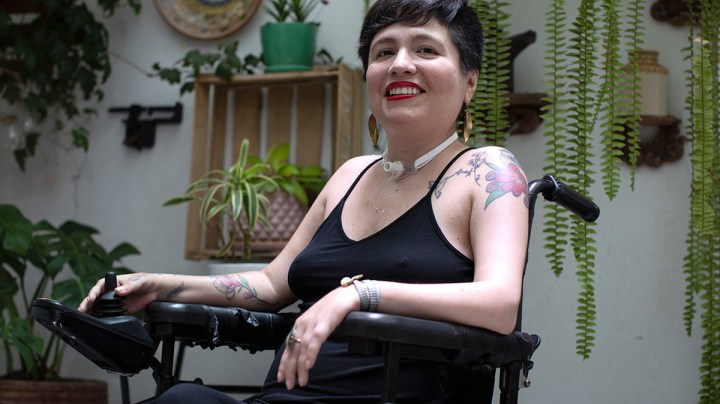Peru Grants Terminally Ill Woman the Right To Euthanasia

sychologist Ana Estrada, who has suffered from incurable and progressive polio since the age of 12, poses for pictures at her house in Lima, on February 15, 2020. Photo by ANGELA PONCE/AFP via Getty Images
Peruvian Ana Estrada, who suffers from polymyositis, a rare incurable disease that progressively attacks her muscles, has won her fight to die on her terms.
Estrada, who is confined to her bed, says she feels “happy and content” about the historic decision by Peruvian officials to allow her an assisted death, a remarkable ruling in a country where over 76% of its population is Roman Catholic and where euthanasia is illegal. The government has said it will not be appealing the case.
She began her court battle to be allowed to decide to end her own life “when the time comes” in 2019, and has maintained a blog named “Ana busca la muerte digna” for several years where she documents her ailments and her wish to die with dignity and on her terms.
Her journey began when she was diagnosed with polymyositis when she was 14 years old, by the time she was 20, she was in a wheelchair. In 2015, her condition deteriorated. The muscles responsible for the respiratory movement were weakened. Estrada spent a year hospitalized in intensive care. Today, she uses a respirator to breathe most of the time.
The court ruling provides that state health insurer provide “all conditions” needed for Estrada’s euthanasia, which must occur within 10 business days from the date that she decides to end her life. The court ruling also cleared anyone assisting Estrada in her death from facing charges, although local law still prohibits anyone from helping people to die.
“It is an individual case, but I hope it serves as a precedent,” Estrada, told Reuters, after the decision was made.
“My body is failing, but my mind and my spirit are happy,” she said. “I want the last moment of my life to continue like this, in freedom, with peace, tranquility and autonomy. I want to be remembered like that.”